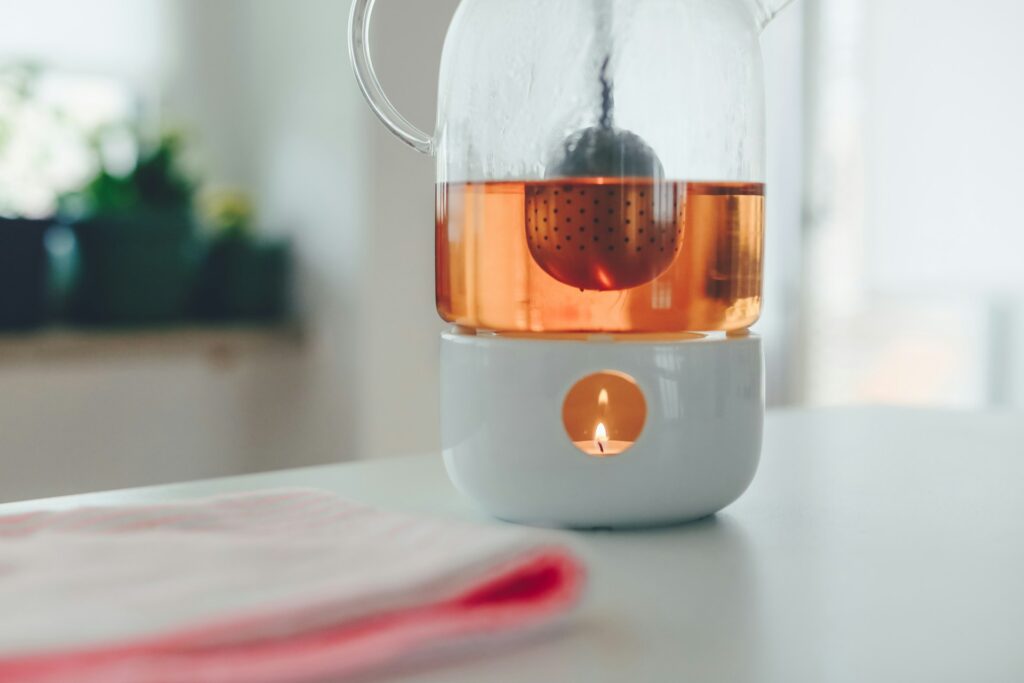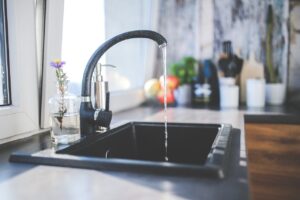Bloating is a common digestive issue that can cause discomfort and a feeling of fullness. It can result from various factors, including diet, stress, and digestive disorders. Fortunately, certain types of tea can offer natural relief. This article explores some of the best teas for alleviating bloating and their health benefits.
Peppermint Tea
Peppermint tea is renowned for its refreshing flavor and health benefits, particularly in digestive health. It contains menthol, which acts as an antispasmodic, helping to relax the muscles of the digestive tract and reduce the spasms that cause bloating. Peppermint tea can relieve gas and bloating, making it a top choice for those seeking digestive comfort.
Ginger Tea
Ginger has been used in traditional medicine for centuries, particularly for treating nausea and digestion-related issues. Ginger tea helps enhance digestive juices and the smooth muscle tone of the intestines, aiding the movement of food and reducing gas production. Its anti-inflammatory properties also help calm the digestive system.
Chamomile Tea
Chamomile is not only great for relaxing and aiding sleep but also an effective remedy for digestive distress. It helps reduce inflammation in the digestive tract, soothe the stomach, and relieve gas and bloating. Drinking chamomile tea can also help reduce stress, which is often a contributing factor to bloating.
Fennel Tea
Fennel seeds are another traditional remedy for digestive problems, including bloating and gas. Fennel tea, made from the seeds of the fennel plant, has carminative properties that help expel gas and ease bloating. It also supports overall digestion and can be beneficial for people with IBS.
Green Tea
Green tea is packed with antioxidants and has been linked to numerous health benefits, including improved digestion. It can increase metabolic rate and help in the breakdown of fats, which can indirectly relieve bloating. Green tea is best consumed in moderation, as too much caffeine can counteract its beneficial effects on bloating.
Lemon Balm Tea
Lemon balm, a member of the mint family, is effective in easing digestive issues and bloating. It helps relax the digestive system and can reduce the incidence of indigestion and gas. Lemon balm tea also has a mild sedative effect, enhancing its stress-relieving properties.
Dandelion root is a natural diuretic that helps the body eliminate excess water, reducing water retention and bloating. This tea also supports liver health, which is crucial for proper digestion and metabolism.
Usage and Precautions
While these teas are generally safe for most people, it’s important to consider any allergies or underlying health conditions before trying new herbal remedies. Pregnant women and those on medication should consult their healthcare provider before consuming herbal teas.
Herbal teas offer a gentle and natural way to manage bloating. Whether it’s the soothing properties of chamomile or the digestive benefits of ginger, incorporating these teas into your routine can help enhance your digestive health and overall well-being. Remember, for persistent bloating, it’s best to seek advice from a healthcare professional to identify any underlying health issues.
How to Incorporate These Teas into Your Routine
Integrating these teas into your daily routine can be both enjoyable and beneficial for managing bloating. Here are some practical tips to get the most out of these herbal remedies:
Choose High-Quality Tea
Opt for organic and high-quality tea leaves or bags. The purity of the tea can greatly affect its health benefits, so choosing a reputable brand ensures that you receive the maximum therapeutic benefits without unwanted chemicals or additives.
Timing is Key
For best results, drink these teas either right before or after meals. This can help prime your digestive system for food or aid in digestion and gas reduction after eating. For example, drinking peppermint tea after dinner can prevent nighttime bloating and promote better sleep.
Brew Correctly
Follow brewing instructions carefully. Most herbal teas are best steeped in hot water for 5 to 10 minutes. Over-brewing can lead to excessively strong tea that may cause adverse effects, such as increased heartburn in the case of peppermint.
Listen to Your Body
Not all teas may suit everyone equally. Pay attention to how your body responds to different herbal teas. Some people might find certain herbs too strong or may have allergic reactions to specific ingredients. If you notice any negative symptoms, discontinue use and consider consulting with a healthcare provider.
While these teas are effective in managing bloating, they are most effective when combined with a balanced diet. Avoid excessive consumption of bloating-inducing foods such as carbonated drinks, high-sodium foods, and overly processed meals. Instead, focus on a diet rich in fruits, vegetables, and whole grains.
Regularity and Moderation
Incorporate these teas as a regular part of your daily routine but in moderation. Overconsumption of any herbal tea can lead to other health issues. For example, too much green tea might lead to increased caffeine intake which can disrupt your sleep or cause jitteriness.
Customize Your Tea Experience
Feel free to mix and match different teas to create a blend that suits your taste and specific digestive needs. For instance, a blend of fennel and ginger tea can be particularly effective for severe bloating, combining the benefits of both in one cup.
Herbal teas are a wonderful addition to your health regimen, offering natural solutions to bloating and other digestive issues. By understanding the properties of each tea and how they can benefit your digestive health, you can make informed choices that enhance your well-being. Remember, while these teas can provide relief, persistent bloating should be evaluated by a healthcare professional to rule out any serious conditions.




